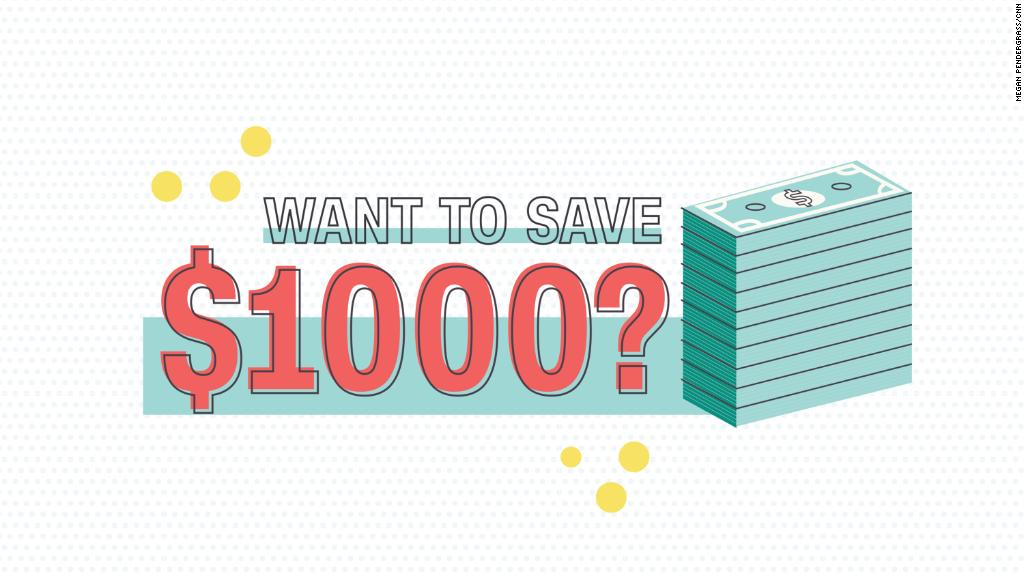
What is the best way to control spending? No matter what I do to control spending and pay down my credit card, I always feel like I come back to the same place where I had started with the balance. Having an authorized user is one problem but most of the expenses are just food, gas and other expenses that are not luxury. -- Shah
Many Americans have an overspending problem.
"It really doesn't matter whether someone makes $30,000 or $500,000, people have the same challenges of overspending regardless of their income level," said Eric Roberge, a certified financial planner and founder of the firm Beyond Your Hammock.
Credit card debt can be a heavy burden -- and a tough one to get rid of.
Here's what financial experts recommended to help get out of the revolving door of overspending:
Face the spending music
It's not easy, but step one is to take a hard (and honest) look at all your spending.
That means identifying everything you spent money on in the last few months: housing, food, gas, entertainment, clothes, drinks...everything.
"Have the courage to take a look," said Jaime Quiros, certified financial planner and portfolio manager with FBB Capital Partners in Bethesda, Maryland. "A lot of people don't want to, it's scary sometimes and numbers aren't peoples favorite."
Personal finance apps that help you track your spending, including Mint and Wally, can do a lot of the heavy lifting for you.
Once you know exactly where all your money is going, it's easier to identify potential areas to cut back on.
Find a budget that works for you
Once you know how much money you are taking in and where it's going, it's time to create a budget.
"Budgeting is one of the key components to managing money, especially when you are trying to pay down your credit cards," said Quiros.
There's no one-size-fits-all budget.
"It's trial and error," said Roberge. "There are so many different strategies out there you have to read about them, find one that you think will work for you and try it and if it doesn't work ask yourself why and then try and find another that fills that gap."
There are a variety of budgeting practices that can reign in spending to better manage your money.
For example, the popular 50/30/20 method delegates 50% of your paycheck to necessities like rent, utilities and transportation, 30% to wants and 20% to savings and paying down debt. You can be even more specific with a top-down budget that gets more specific with the categories, like designating 5% on clothing, 15% on groceries or 10% on going out.
Related: Need a budget? Here are some options
There's also the envelope budget: Figure out how much money you want to spend on each aspect of your life and then put the designated amount of cash in a labeled enveloped. Once the cash is in that envelope, you're done for the month.
Creating a budget that works for you can help avoid overspending and help shore up funds to pay down debts.
"Nobody wants to live like a pauper or miser," said David Peterson, certified financial planning and managing director at United Capital. "That is why doing a budget is the most critical thing you can do, and it has to be accurate."
Go on a cash diet
Only using cash at the check-out counter can help curb overspending since it provides a more tangible signal of money leaving your possession.
"People use credit cards without paying attention to how much they are spending," said Quiros. "You have this credit line which is usually a lot bigger than what you can afford on a monthly basis."
If you don't like to walk around with cash, sticking to a debit card can also help limit spending, suggested Roberge. "You have to keep within the boundaries of what funds you have available."
Related: When is the right time to see a financial adviser?
If you aren't ready to give up your credit cards, it's important to take time to fully evaluate a purchase before swiping. Peterson said one way to force yourself to pause before using a credit card is to put it in the freezer. Waiting for the card to thaw to use it provides forced thinking time to make sure you really need the purchase.
While it may seem silly, it worked for one of his clients. "They were in a rush to buy something [on TV] and by time it was thawed, the thing was gone, and the client realized they didn't need it."
Small tweaks can bring big savings
Making a few changes to your spending can add up to significant savings.
Let's say you buy a $5 coffee every day on your way to work. Cutting back to three cups during the week can you save you around $40 a month and almost $500 a year.
Picking one area of your spending to focus on cutting back can also help reduce spending. For many people, food is a budget buster.
"As a society, we waste so much money on food it's incredible if we can just cut back there on things you don't need and the things that go bad quickly it will help so much," said Peterson.
